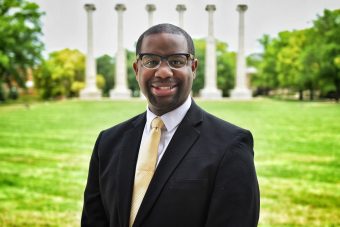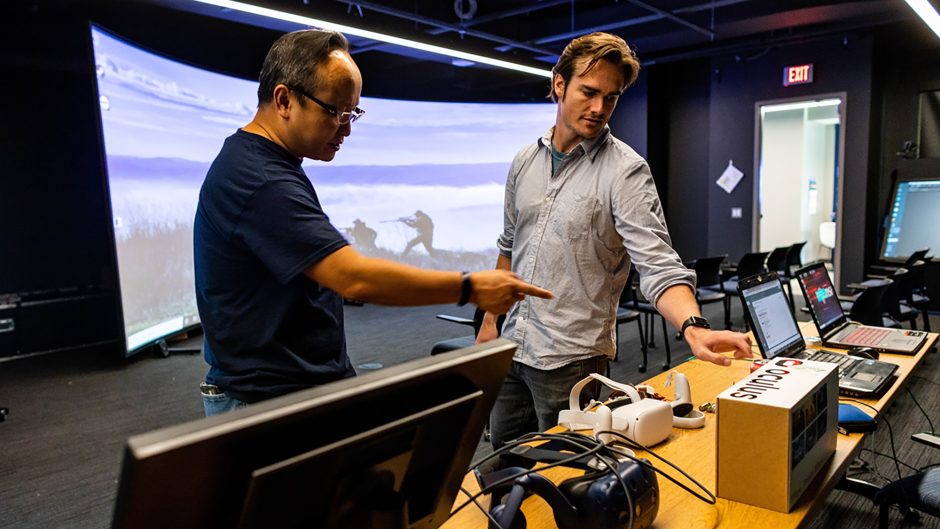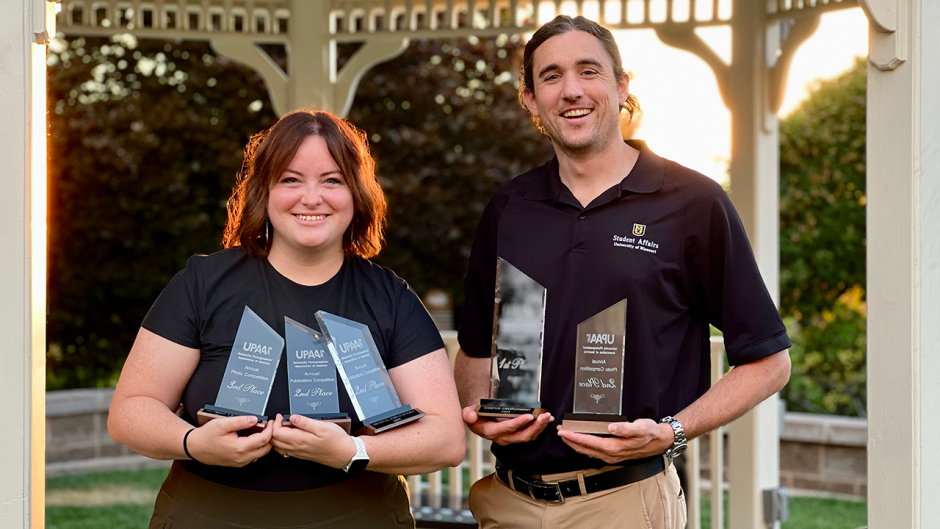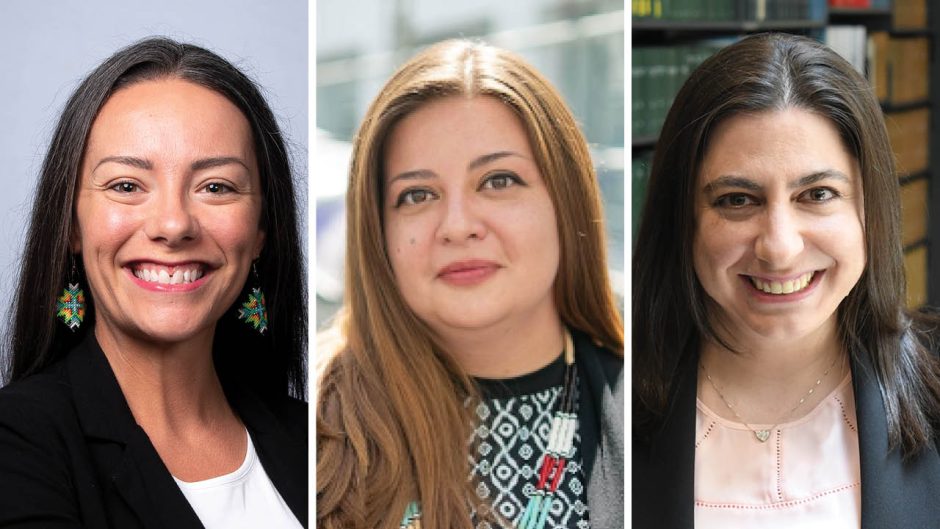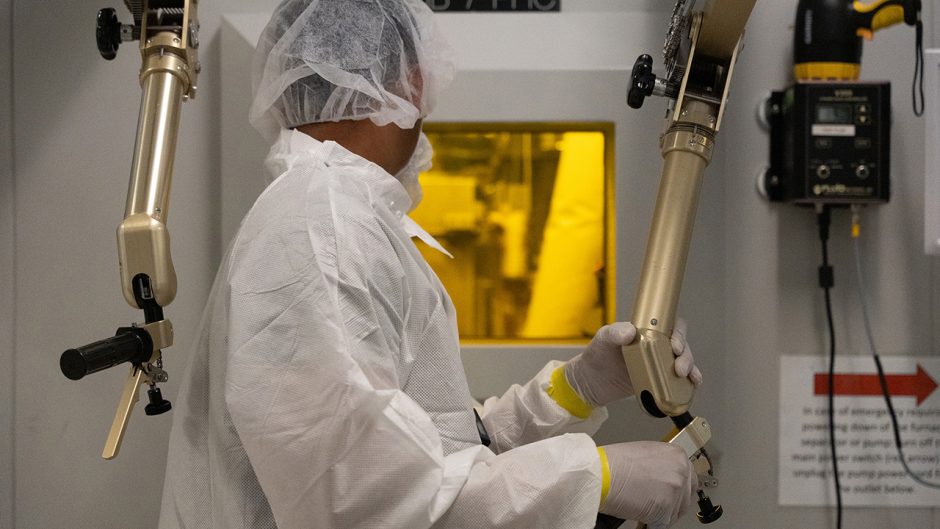Aug. 31, 2020
Maurice Gipson believes that education is the great equalizer.
But for some students, especially those who are first in their family to attend college, reaping the benefits of higher education and all it has to offer requires more than an opportunity to be there. They need a system of support once they arrive.
Gipson, the new vice chancellor for Inclusion, Diversity and Equity at MU, wants to make sure that infrastructure is in place for every student at Mizzou, no matter their background.
For Gipson — a Black man raised in the South by a single mother who worked hard to give him and his three sisters a better life — the mission is personal.
“I am very passionate about that because of my own experience — and that is not to say you have to grow up poor to have these ideals,” he said. “But I think your experiences shape who you are and ground you in the work you want to do.”
Gipson came to Mizzou this summer from Arkansas State University in Jonesboro, where he was vice chancellor for diversity and community engagement. While there, he helped increase overall minority student enrollment for three consecutive years, grew community partnerships by 50%, and developed strategic partnerships with 10 historically Black colleges and universities as a graduate school pipeline. He also taught undergraduate courses in diversity and United States history. Before that, he served two years as a special assistant to the vice president for Diversity and Community Engagement at the University of Texas at Austin, and as an institutional advancement and diversity consultant at Langston University in Langston, Oklahoma.
Gipson brings with him a reputation for working collaboratively with administrators, faculty, staff, students, alumni and community members to reach institutional goals. But the heart of his work is in the relationships he develops with students, especially those whose stories echo his own.
“Looking back, I’ve been surrounded by this subject matter my entire life. I’ve been deeply rooted and invested in it,” Gipson said. “I made a career in this area and didn’t even realize that I was learning very early lessons 30 years ago.
“For me,” he added, “it makes me much more effective in this area, particularly as it relates to the student experience.”
IDE at Mizzou
Mizzou has made significant strides in recent years in the area of inclusion, diversity and equity. Since 2017, the graduation rate among African American students has risen from 51.9% to 58.4%, and the graduation rate for Hispanic students has risen from 63.5% to 66.5%. Also, underrepresented faculty — including African American and Hispanic — have grown by 32% since 2015, from 140 to 185 faculty members.
As vice chancellor for Inclusion, Diversity and Equity, Gipson is charged with continuing the work to improve MU’s culture of inclusion, including advising the campus on recruiting and retaining students, faculty and staff that enhance the university’s community, expanding existing programs that encourage underrepresented groups to study or work in various disciplines, and improving or developing new training programs for the campus community.
B. Sherrance Russell, vice president for Student Affairs and Enrollment Management at Central State University in Ohio, said he’s known Gipson for 10 years and is convinced he’s the right man for the job at Mizzou.
“Maurice is the kind of guy who rolls up his sleeves and says, ‘Let’s get this done,’” Russell said. “He has so much charisma and enthusiasm. No matter how daunting the task may be, Maurice can bring people to the table and accomplish great things.”
The early years
Gipson was born in Ferriday, Louisiana, a small town located about 100 miles north of Baton Rouge — population: 3,227 in 2018. His parents were college sweethearts who met while attending Alcorn State University, a public, historically Black, land-grant university in Lorman, Mississippi. Six months after his birth, Gipson and his family moved to California where his father served in the Air Force. Several years later, the family settled in England until Gipson’s parents divorced, and he, his sisters and mother returned to Ferriday.
Back in Louisiana, Gipson’s mother went to work at a local gas station, and he started the third grade still talking with a strong British accent, which earned him relentless teasing. The reaction of his new classmates devastated him. He became more reclusive and buried himself in books, turning into a voracious reader and straight-A student.
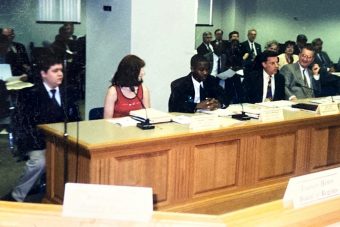
Maurice Gipson was 17 when he testified before the Louisiana State Legislature about the importance of 4-H and youth development.
Gipson’s life changed dramatically in the eighth grade when he was introduced to 4-H.
“Not the cows and cooking kind of 4-H,” he said. “For me, 4-H was leadership development.”
Under the caring tutelage of Concordia Parish 4-H Agent Debbie Bairnsfather, Gipson rebuilt his confidence and developed new skills. He began to see possibilities, not limitations.
“She taught me about public speaking and how to engage with people,” he said. “It was transformational.”
Gipson participated in 4-H through high school and in 2000, became the first Black state president of 4-H in Louisiana. And it was through 4-H that Gipson first traveled to the Louisiana State University campus. So impressed with the experience, young Gipson vowed to return as a student — and he did.
“I would not have gone to LSU absent of that experience," Gipson said. "Having access to that campus at an early age set me apart. If we can get young kids access to Mizzou early and often, they will want to come back.”
Stand by me
Gipson graduated fourth in his high school class, maintained a high GPA and scored well on the ACT. But not long after arriving at LSU, he discovered being smart wasn’t enough to understand how to navigate the system and meet the expectations. Gipson needed guidance, motivation, emotional support and role modeling — he needed a mentor.
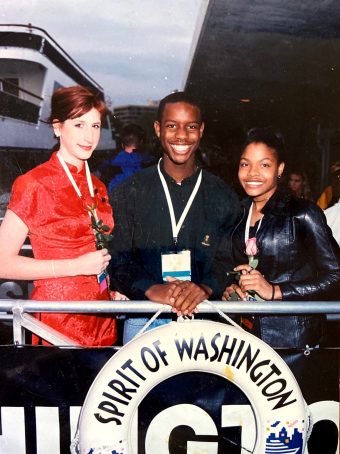
Gipson, 16, was among three 4-H delegates from Louisiana who attended the Nation 4-H Youth Conference in Washington, D.C.
“Everything pointed to me being a solid student — high grades and high achieving — but I was starting at a disadvantage with few other supports of college readiness,” he said. “We need to make sure we have guardrails in place for the most vulnerable.”
Eventually, Gipson landed a student job in the multicultural affairs office where he came under the watchful eye of a young up-and-coming administrator named Roderick Smothers, who today is president of Philander Smith College, a historically Black college in Little Rock, Arkansas.
Smothers took Gipson under his wing and shepherded him along. Smothers would provide advice, like join the Alpha Phi Alpha fraternity, and hold him accountable for his school work. While Gipson had always been a responsible student, once at college, he became distracted, developed some bad habits and, at times, became overwhelmed.
Smothers helped keep his eyes on the prize.
“I would do assignments and have him look at them, and he would be like, ‘That’s not good enough,’” Gipson recalled. “He’s one of the first people who held me accountable. I didn’t want to let him down.”
Fortunately for Gipson, there would be others along the way who helped build him up and keep him going. That’s why today, mentoring is so important to Gipson. He understands the power of relationships and how one person can change the trajectory of another person’s life.
“That’s why I am so passionate about having these wraparound services for our students,” Gipson said.
The beat goes on
No matter where his career has taken him, Gipson has taken up the mantle of mentorship with students. He believes it’s key to helping underrepresented students maximize their college experience and change the direction of their lives.
Dominique Phillips, who graduates this month from Arkansas State University, considers Gipson her “collegiate father” and credits him for inspiring her to attend law school next year. Together, Phillips and Gipson worked to create a bridge program at A-State for incoming minority freshmen.
“He taught me how to balance my responsibilities,” she said. “I strongly encourage the students at Mizzou to use him as a resource. That’s what we preach at A-State: use your resources.”
Ja’Von Long, also worked with Gipson at A-State when he was student while assisting with diversity recruitment. Long said it was inspiring for him to see a Black man in an administrative position on campus.
“Having someone who looks like me in that kind of position was so important,” he said.
A place to thrive
Gipson said the biggest fears for most underrepresented students are a fear of not belonging and a fear of failure.
“First, it’s important to me to reassure these students that they, in fact, belong right here on this campus,” he said. “Second, I let them know that I will not allow them to fail. I just won’t allow it. When they know that someone on campus supports them completely and will hold them accountable, they typically thrive.”
MU’s Division of Inclusion, Diversity and Equity includes the offices of Access and Leadership Development, Accessibility and ADA, Civil Rights & Title IX, the Gaines/Oldham Black Culture Center, the LGBTQ Resource Center, Inclusive Engagement, Multicultural Center, Relationship and Sexual Violence Prevention Center, and the Women’s Center. The division’s work is guided by the Inclusive Excellence Framework that reaffirms MU’s commitment to growing and sustaining a diverse and welcoming environment for all faculty, staff, students and visitors.

